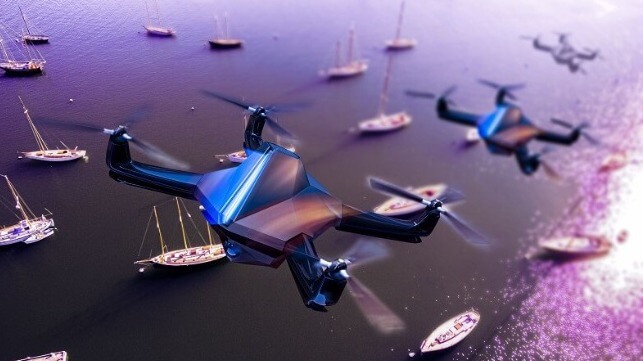Why Robots Are Set to Win the Fight for Fish

In 2019, a group of engineers from the Canadian start-up Open Ocean Robotics were trying to test a robotic boat called Scooby. As they pushed it into a lake, the three-meter craft swerved into the bushes. The team knew that their work was not over yet.
Last year the company managed to secure funding that would help them rectify the shortcomings in the autonomous solar-powered vessel. An improved version cleared the first round of a challenge to build a robot that can police illegal fishing in marine protected areas.
Curbing illegal fishing activity in the open seas will be no mean feat. It might sound trivial, but it has serious implications, with illegal fishing accounting for 20 percent of all wild fish caught, earning poachers $10-23 billion a year.
According to the World Wide Fund (WWF), our oceans support the livelihoods of an estimated 520 million people, and there 2.6 billion people who depend on fish as an important part of their diet. Illegal fishing threatens this critical food supply for coastal communities, and it jeopardizes the livelihoods of millions of people, sometimes forcing them to resort to desperate measures like piracy and smuggling. Effectively tackling this challenge will contribute to the empowerment of people who rely on oceans for food and income.
Autonomous marine robots offer an opportunity to scale up our capability to police vast bodies of water. Despite increasing interest among the global scientific community, the goal of achieving full autonomy in robotics for marine security remains elusive. Many experts believe that it cannot be achieved in isolation but will require reinforcement of strong cooperative links among universities, research institutes, companies and stakeholders worldwide.
Realizing that a global problem such as illegal fishing requires a solution through global cooperation, ASPIRE, the organiser of MBZIRC Maritime Grand Challenge, has decided to invite all these entities - as well as individual innovators - to develop unmanned solutions that help tackle a host of maritime security challenges. ASPIRE is a dedicated technology program management arm of the Advanced Technology Research Council (ATRC), the overarching advanced technology research body in Abu Dhabi, which will hold the competition in the UAE capital in 2023.
The challenge will involve heterogeneous collaboration among unmanned aerial and surface vehicles, requiring them to perform complex navigation and manipulation tasks in a GNSS-denied environment.
“Using advanced robotic systems can reduce costs and enhance human capabilities in handling some of the often-dangerous tasks. The idea behind holding the MBZIRC Maritime Grand Challenge is to take the technology out of the laboratory and test it in a real-world environment to see what is possible," said Dr. Arthur Morrish, Chief Executive of ASPIRE, said:
He explained that autonomous fishery patrol drones will need to gather evidence in a particular way. Documenting that a particular vessel is fishing is one thing, but determining if a vessel is engaged in illegal fishing is another.
The challenge is for a swarm of UAVs to identify a target vessel from several similar vessels in open waters in a GNSS-denied environment, and to offload specific items from the target vessel onto the USV. The winner will be the team that completes this in the shortest possible time and makes the fewest errors using an entirely autonomous system.
Globally, there is a wide disparity in the capability to tackle illegal fishing – a gulf that might be bridged only by autonomous robots. Even though a single robot might cost thousands of dollars, that price is still going to be much less than the cost of a ship and crew time. “And you have the ability to deploy it 24/7, under any weather condition,” said Dr. Morrish.
Dr. Arthur Morrish is CEO of ASPIRE, Abu Dhabi’s technology wayfinder and catalyst, managing ‘Grand Challenges’ and coordinating competitions that will shape research for years to come.
The opinions expressed herein are the author's and not necessarily those of The Maritime Executive.
